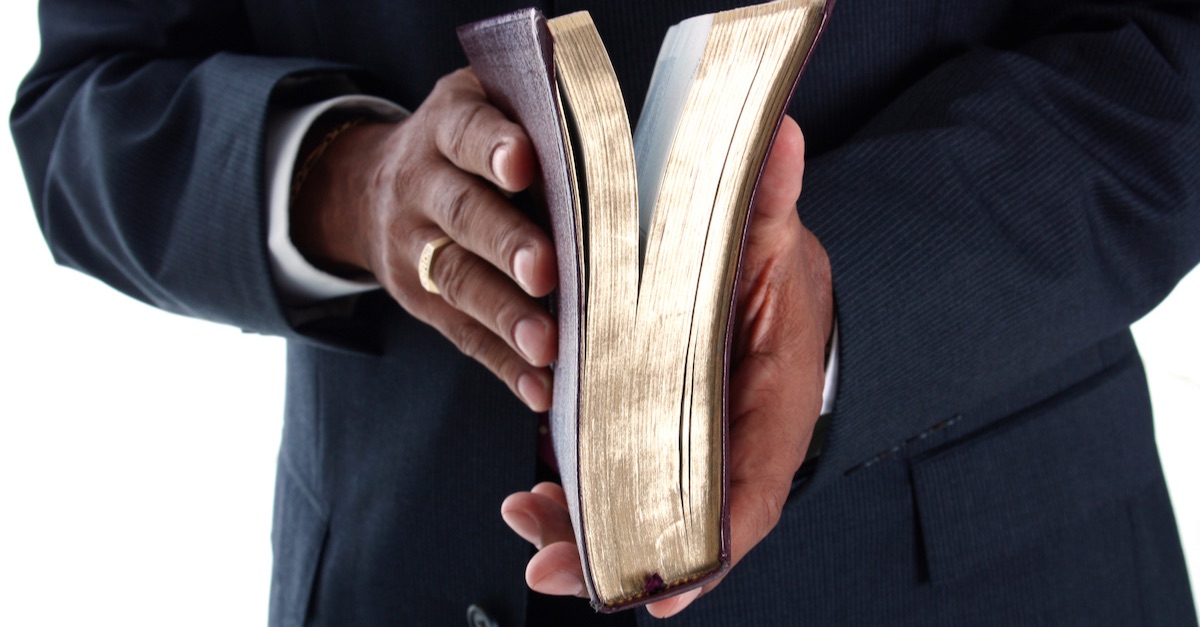What Are the Qualifications of an Elder?

“Paul and Barnabas appointed elders for them in each church and, with prayer and fasting, committed them to the Lord, in whom they had put their trust? (Acts 14:23).
From very early on there were elders appointed with the responsibility of leadership in the church. This was a very noble task and one that should never be taken lightly, either then or now. Maybe you have thought about being an elder or leader in the church. If you have, or even if you haven’t, it’s important to know what the qualifications of an elder are. The Bible gives us very clear guidelines for this.
Let’s consider what the requirements for leadership are and let’s see if you measure up or if your leaders measure up.
What Is an Elder?
Let’s first define what an elder is according to the Bible. When you think of an elder, you should think who and not what because elders are people. In the church, an elder is a person who is in a leadership position. Many churches may not use the term elder, but an elder is a pastor.
The use of the word elder in the New Testament is interchangeable with the word bishop or overseer. In fact, in Titus 1, which we will get to in a moment, Paul uses both words in describing the qualifications of an elder. The major responsibility is to oversee or manage God’s house or the church. The most important aspect of that is the people of God. Notice how Peter describes the elder and their role:
“To the elders among you, I appeal as a fellow elder and a witness of Christ’s sufferings who also will share in the glory to be revealed: Be shepherds of God’s flock that is under your care, watching over them—not because you must, but because you are willing, as God wants you to be; not pursuing dishonest gain, but eager to serve; not lording it over those entrusted to you, but being examples to the flock” (1 Peter 5:1-3).
What Are the Qualifications of an Elder?
There are two Bible passages that give clear qualifications of an elder. You will find some similarities in both passages so let’s look at them.
“Here is a trustworthy saying: Whoever aspires to be an overseer desires a noble task. Now the overseer is to be above reproach, faithful to his wife, temperate, self-controlled, respectable, hospitable, able to teach, not given to drunkenness, not violent but gentle, not quarrelsome, not a lover of money. He must manage his own family well and see that his children obey him, and he must do so in a manner worthy of full respect. (If anyone does not know how to manage his own family, how can he take care of God’s church?) He must not be a recent convert, or he may become conceited and fall under the same judgment as the devil. He must also have a good reputation with outsiders, so that he will not fall into disgrace and into the devil’s trap” (1 Timothy 3:1-6).
“An elder must be blameless, faithful to his wife, a man whose children believe and are not open to the charge of being wild and disobedient. Since an overseer manages God’s household, he must be blameless—not overbearing, not quick-tempered, not given to drunkenness, not violent, not pursuing dishonest gain. Rather, he must be hospitable, one who loves what is good, who is self-controlled, upright, holy and disciplined. He must hold firmly to the trustworthy message as it has been taught, so that he can encourage others by sound doctrine and refute those who oppose it” (Titus 1:6-9).
You can see from these two passages what the qualifications of an elder are. I want to highlight from these Scriptures some of the things that matter when you look at the qualifications of an elder.

Photo credit: ©Getty Images
Character Matters
The elder is to be above reproach or blameless. This does not mean they are to be perfect, but they should not be living a willfully sinful lifestyle. It is important to understand that the character of the person is not determined just by what is seen in public, but by what happens in their own house. If you want to lead, or you want someone to lead in church, focus on becoming good at leading in your house first.
Self-Control Matters
This person should be able to control their anger, their appetites, and their attitudes. This person should be living out the fruit of the Spirit, which includes self-control. People who are hotheads or who have uncontrolled passions do not make for good leaders in the church. I am not saying they can’t be Christians, but for leadership it doesn’t usually work. Remember the leader will have impact and influence on many people so their behavior really matters.
Maturity Matters
It is so important that a person never gets rushed into a leadership position. If you want to set someone up for failure, let them lead in the church before they are ready. As great as leadership can be there are many dangers and pitfalls as well. Paul mentions pride as one of them. The challenge of being an elder is that not only will people look up to you, they may tell you what they think of you, both good and bad. If you are not mature enough to handle this, it can increase your confidence, causing you to think you are more than you really are. The flipside is that it can destroy your confidence, causing you think you can’t do anything right. It takes a lot of maturity to be an elder and you cannot discount this when choosing leaders.
Sound Doctrine and the Ability to Teach Matters
As an elder one of the responsibilities is to help others grow. If you want to do this, you must be able to teach others and you must hold to sound doctrine. Remember people are looking up to you for guidance and instruction. You must know what you believe and be able to express it to others.
Care for People Matters
One of the most important qualifications of an elder in my opinion is they must care about people. In both passages, he mentions the requirement of hospitality. This means they must be the type of person that welcomes people. You cannot be an elder if you don’t like being around people or involved with people. It just won’t work. The most important function as an elder is caring for the people of God. If someone doesn’t like people or doesn’t like being around people, then they are probably not a good fit to be an elder.

Photo credit: ©Getty Images/Rawpixel
When and How Should an Elder Be Removed from Leadership?
One of the most difficult actions that may have to be taken is the removal of an elder or pastor from leadership. Because of the influence this person usually has, this is something that can have lasting effect. An elder should be removed when there are issues that arise that are damaging to his family, the church, or the name of Jesus. Two of the most important responsibilities of every believer is to bring honor to God’s name and to care for those God has entrusted them with. When those things are violated, then it is wise to remove that person so they can recover and repair what needs to be repaired.
Always remember, God prioritizes the relationships and responsibilities outside of the house of God (think wife and kids) more than the ones inside of the house of God. Don’t forget this verse, “If anyone does not know how to manage his own family, how can he take care of God’s church?” (1 Timothy 3:5).
As important as leaders are, the priority should always be on who they are and not just on what they can do. When you think about what is in their best interest it can help in coming to the decision to remove an elder. However, that doesn’t make it any easier. It will always be a difficult thing to do.
A Prayer for Our Elders
God, for those you have put in leadership I pray that they would always prioritize their walk with you first. Let them always find the strength, grace, wisdom, and love they need to lead your people from your throne of grace and nowhere else. Let them be filled with more of your Spirit so they can be the leaders you desire them to be.
In Jesus name,
Amen.
If you desire to be an elder or pastor, you are desiring a noble thing. It is a good thing. I would encourage you to always keep things in the proper perspective. Remember that God’s heart is for you to maintain your relationship with him first and to serve others out of that. This is true not just for those who want to be elders but for all of us. If you are following God into this form of ministry, may God give you all you need to represent him well in your service to his people.
Photo credit: ©Getty Images/Katarzyna Bialasiewicz

Originally published December 01, 2020.





